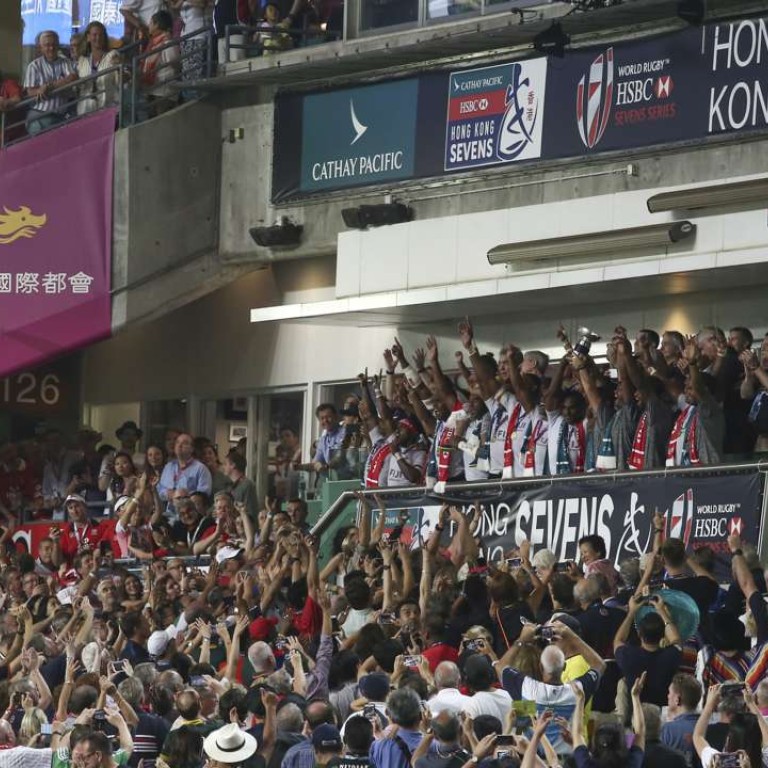
Hong Kong Sevens in danger of losing its soul to World Rugby’s cookie-cutter series
Uniqueness and personality that has made the event such a revered sporting occasion for fans is under threat as Hong Kong Rugby Union struggle for control
The Hong Kong Sevens was for 24 years a standalone, pioneering sevens tournament that cultivated its own prestige and reputation as one of the best sporting events in the world.
Other cities tried to mimic what the Hong Kong Rugby Union had nurtured over more than two decades, but none came close to recreating the atmosphere and sense of importance that came with winning in Hong Kong.
At the end of the previous century, the Hong Kong Rugby Union (HKRU) joined the new Sevens World Series launched by governing body World Rugby and aimed at raising the profile of the game and eventually leading to Olympic Games acceptance.
It was hailed as a game-changer for sevens with the Hong Kong Sevens as its flagship event. The HKRU was naturally proud of its role in unleashing sevens upon the world.
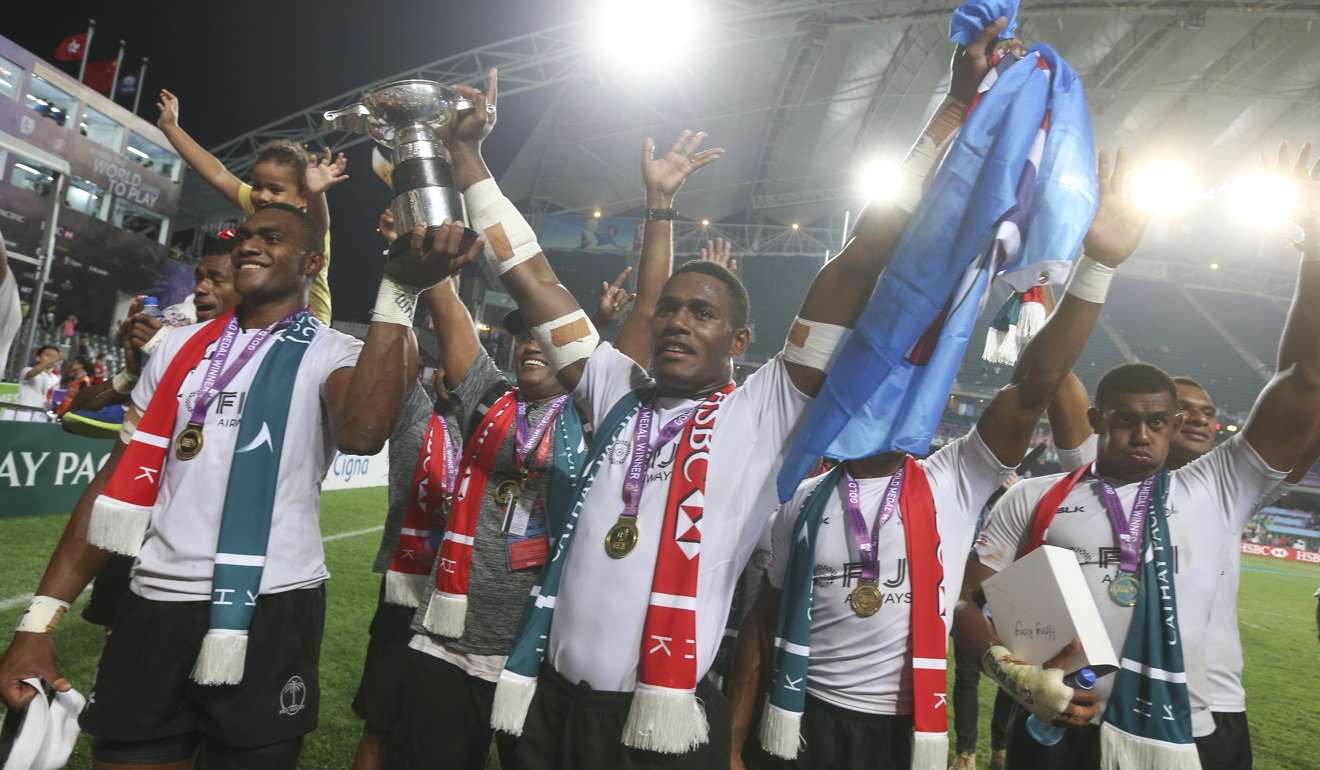
However, did they know at the time that they may have been selling the soul of the Hong Kong Sevens?
It’s taken 17 years to manifest itself so blatantly, but the Hong Kong Sevens appears to be gradually slipping away from the trusty hands of the HKRU and is being gobbled up by World Rugby.
Squeezed out of our own event: World Rugby restricts media from Hong Kong Sevens ceremonies
Being part of the world series is crucial to the Hong Kong Sevens’ continued success and its relevance. It is also essential that the Hong Kong Sevens retains the uniqueness and personality that has made it such a revered sporting occasion for fans.
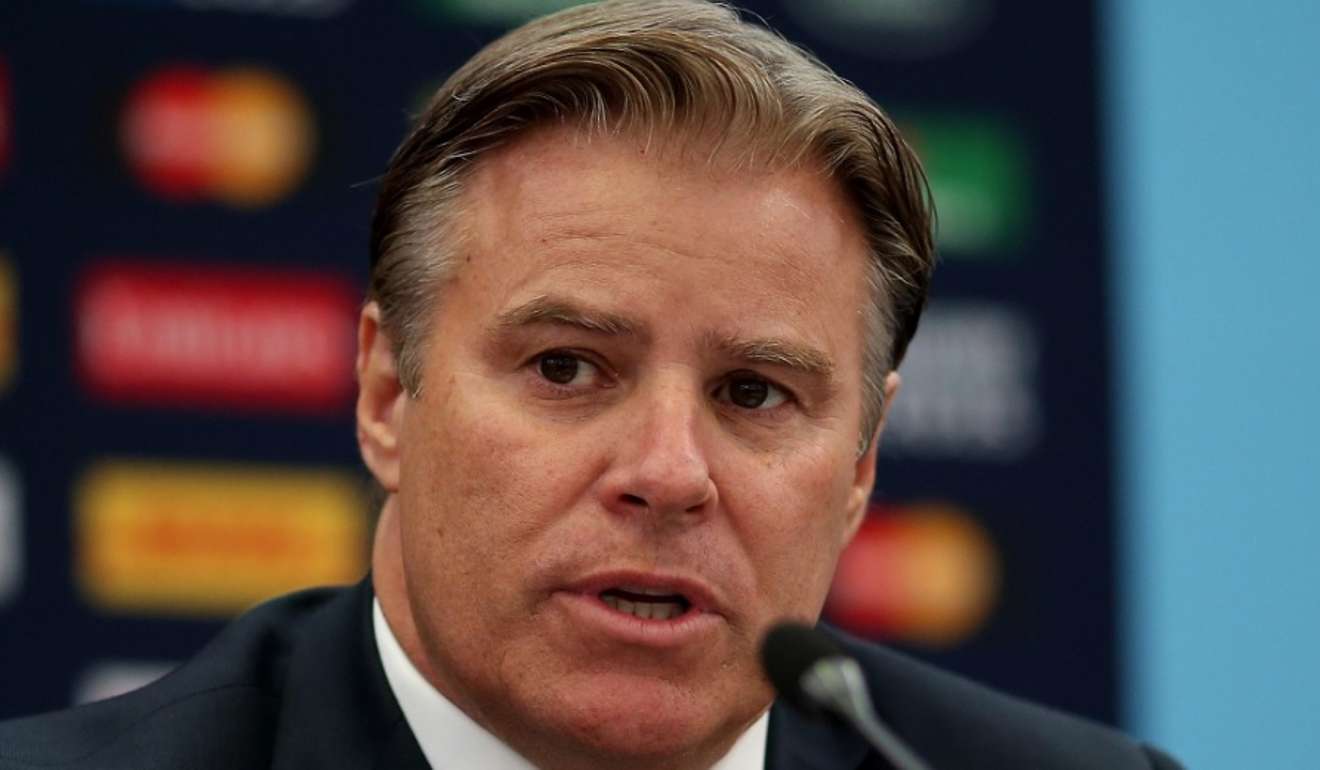
However, the two scenarios are unlikely to be able to exist in harmony for much longer. There is an inevitability to it all; that World Rugby’s influence and authority will gradually dismantle the tournament’s very soul and reduce it to simply another stop on the world series.
The post-final fiasco at this year’s Hong Kong Sevens, in which World Rugby’s public relations machine stomped on the HKRU’s patch by refusing photographers the chance to take pictures of the trophy presentation in order to accommodate television, is a minor yet telling statement about who actually runs the tournament.
Hong Kong Sevens organisers vow to clamp down on underage drinking at annual extravaganza
It seems World Rugby also would like to ditch the traditional march past – one of the highlights of the Hong Kong Sevens weekend and a tradition that goes back to the early years of the tournament – because of scheduling issues.
In addition, they want to do away with the terms cup, plate, bowl and shield for the four tiers of competition and replace it with gold, silver and bronze.
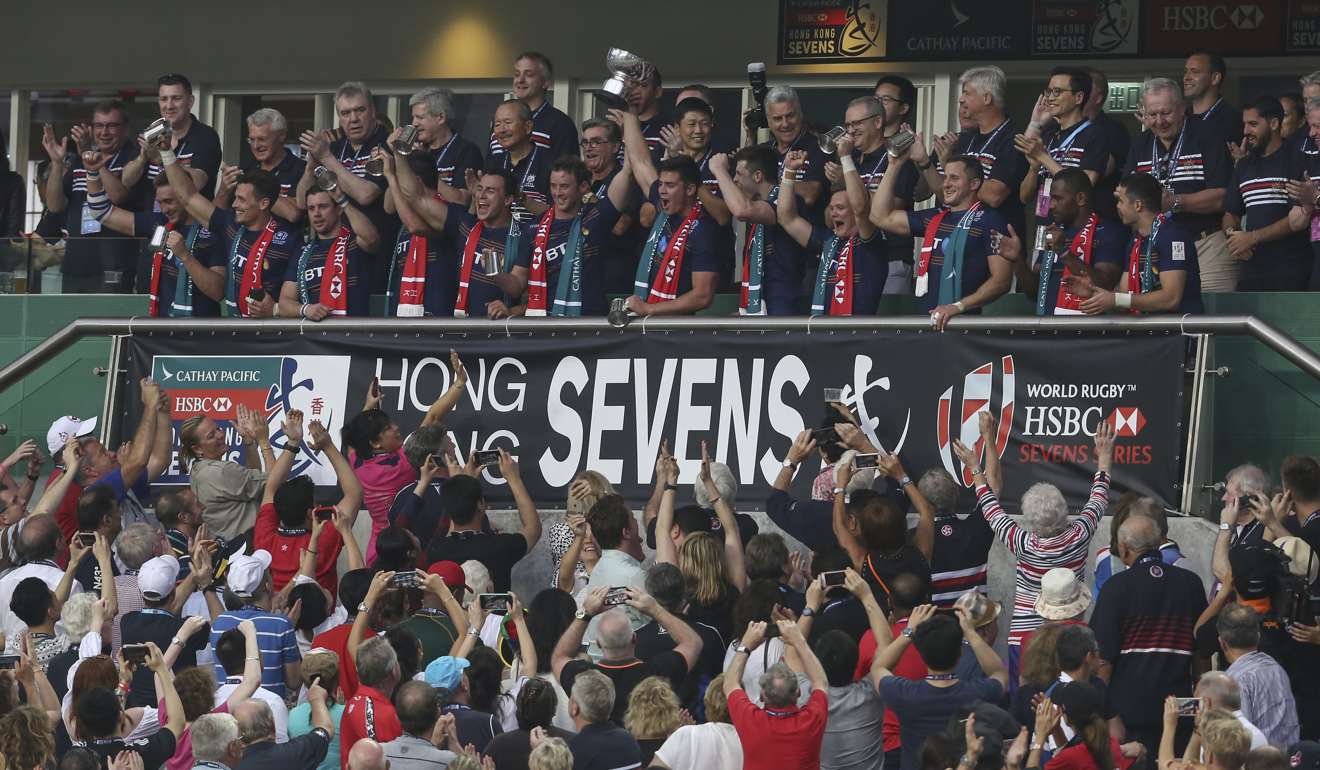
We have already lost the right to invite Asian teams and World Rugby has also taken away our preferred status that once allowed the Hong Kong Sevens to offer more world series points than other tournaments.
One way for the HKRU to take back its event is to leave the world series. Such a scenario would be devastating for both parties, though.
Redemption for Baber as fantastic Fiji blitz Springboks in Hong Kong Sevens Cup final
In the past, there was only Hong Kong and countries would pick squads – often big names from 15s - just for this tournament.
Now, there is a whole series with multiple cities and specialist sevens squads. Also, the unions are controlled largely by World Rugby.
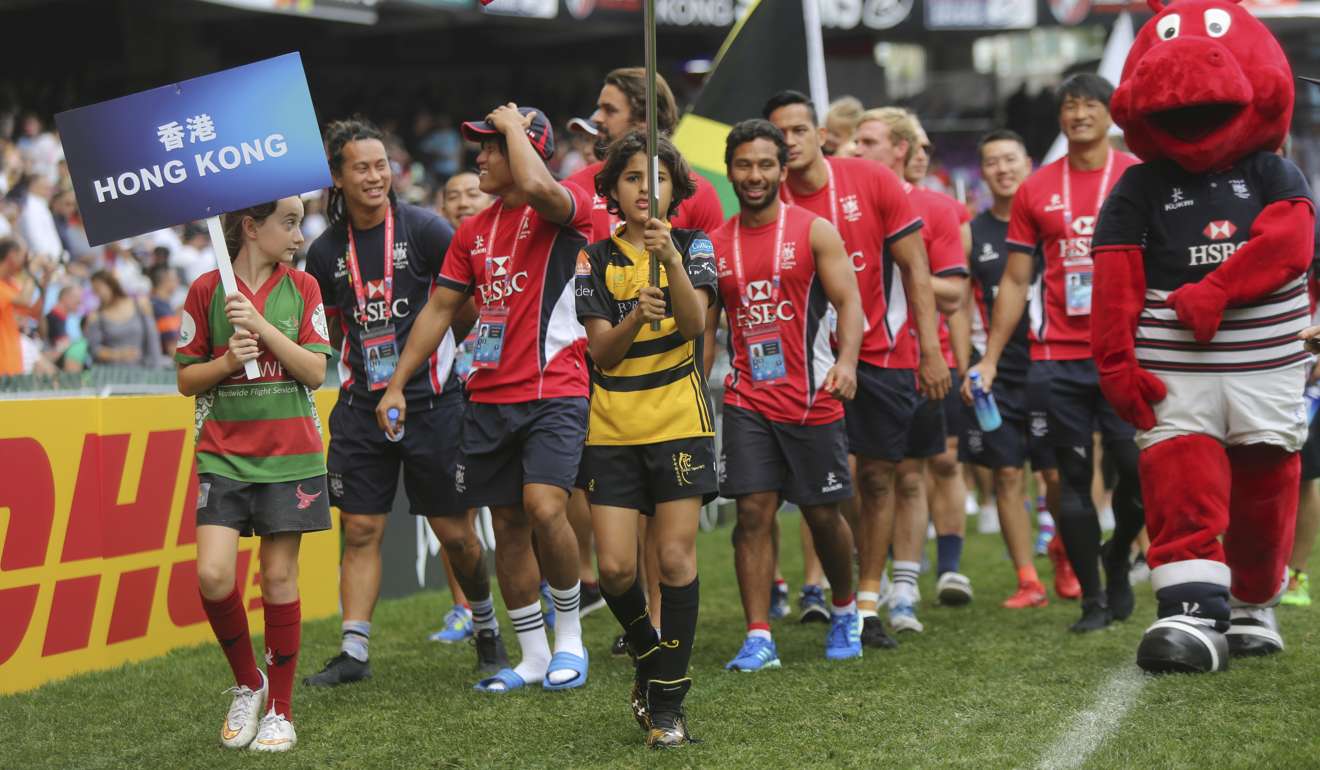
Countries are unlikely to send squads to a rogue tournament that offers no world series points, while possibly risking the threat of sanctions for going against the governing body.
At the same time, Hong Kong is pivotal to the series. It attracts the biggest crowds and generates the most publicity, while other venues such as Wellington and London are struggling for full houses.
Hoteliers, restaurant and bar owners ride the Hong Kong Sevens wave
Olympic champions Fiji look at Hong Kong as the most important sevens event bar the Games. In addition, it was the Hong Kong tournament that was used to sell sevens to the International Olympic Committee.
World Rugby, though, seems bent on stifling Hong Kong’s influence and uniqueness. It’s as if they had absorbed years of knowledge from the HKRU, repackaged it to suit their purposes and then waltzed up to the union officials and told them “this is how it must be done”.
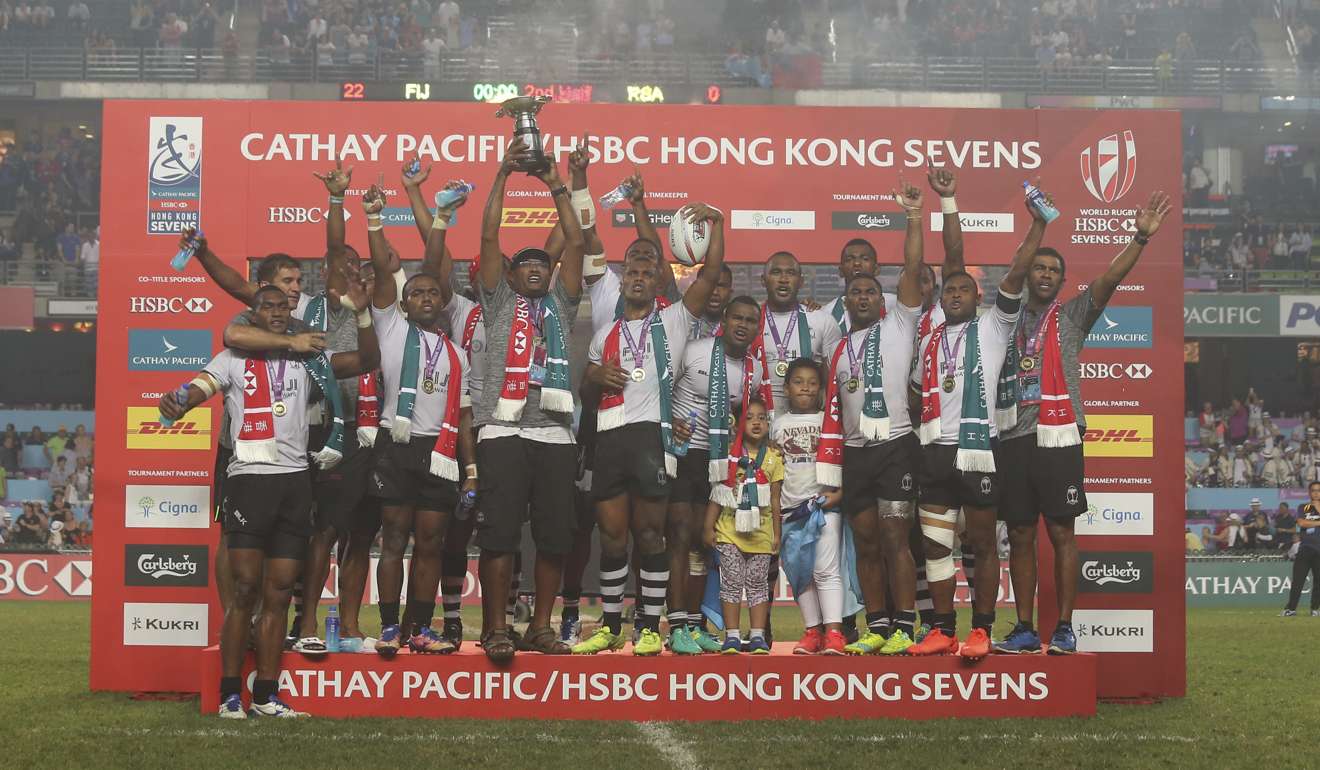
HKRU officials have their hands tied. They do not want to risk the tournament’s place in the world series and are forced to bow to World Rugby demands.
Union chiefs, however, should do everything in their power to prevent the tournament from becoming a carbon copy of the other nine events as World Rugby attempts to create its own cookie-cutter brand.
It’s Madness: Hong Kong noise police refuse to turn a deaf ear as Suggs and Co get the ball rolling on raucous Sevens weekend
The Hong Kong Sevens that the world came to know and love needs to hold on to its identity, while still being part of the global series.
Agents of change usually rely on a new generation of fans, players and officials to erode tradition. This takes time and it’s not too late for the HKRU to reassert its authority.
The Hong Kong Sevens is still the jewel of the Sevens World Series and those involved must ensure the tournament that started it all – while embracing change – holds on tightly to the values that made it a success in the first place.

